Regional libraries play a crucial role in preserving, processing, maintaining, and promoting the intellectual heritage of communities, offering free and equal access to all. Every citizen is served without discrimination and encouraged to participate actively. Libraries also preserve both tangible and intangible cultural heritage, through the collection, documentation, and digitization of personal testimonies and memorabilia, transforming them into sources of information, research, and education for both Greece and the wider world.
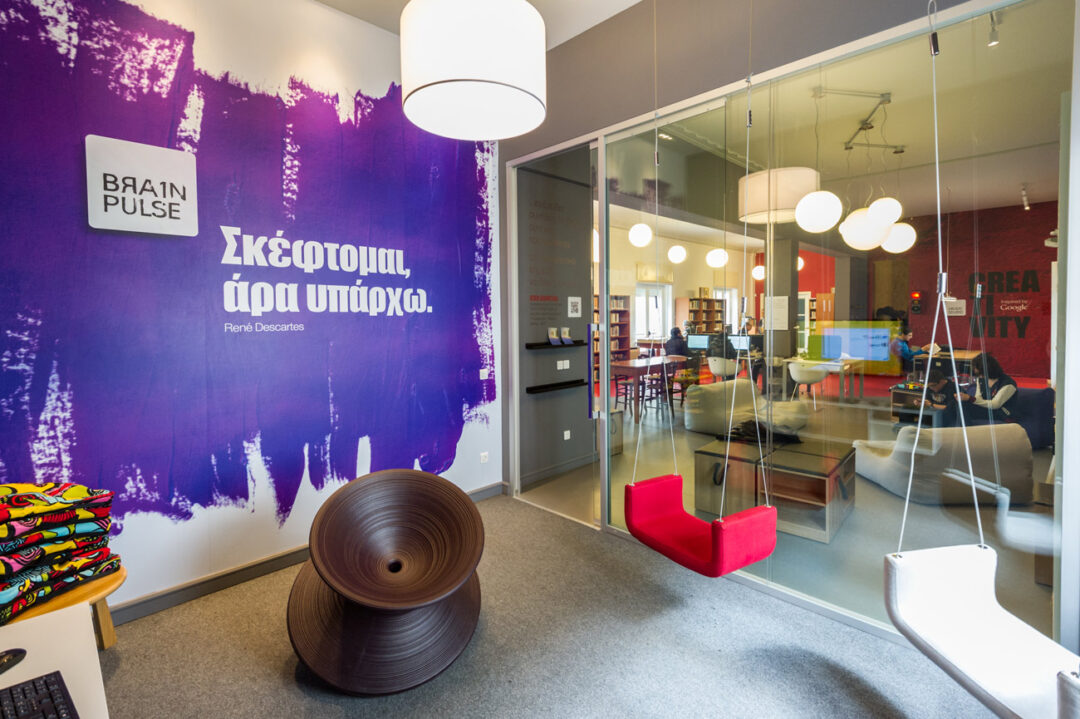
Reading Greece* spoke to Paraskevi Choudalaki,Head of Libraries & Creative Activities Center for Children of the Municipality of Chania, about the Library’s history, the great wealth of books and archives that are housed in the Library, as well as the main challenges it is faced with, and the prospects ahead.
The Chania Municipal Library is a particularly active regional library. Could you tell us a few things about its history?
The Chania Municipal Library was established in 1953 and is housed in an 800-square-meter space within the Chania City Hall. It is one of the largest and most esteemed municipal lending libraries in Greece, playing a significant role in the local community. Among its valuable collections is the personal library of the statesman Eleftherios Venizelos (see question 2).
In 2013, the creation of the Media Lab — a donation from the Stavros Niarchos Foundation — completely transformed the Library, breathing new life into its facilities. The Media Lab is a modern, welcoming, and attractive space available to the public, featuring collaborative areas for meetings, reading, internet access, a Music Studio for audio and video production, and a Brain Pulse area for relaxation and entertainment.
The Library also serves children and teenagers through its branches: the Children’s and Young Adults’ Library at the Municipal Garden; the Children’s and Young Adults’ Library of Souda; the Stalos Library. In 2024, additional facilities were added to the Library Department of the Municipality of Chania: two (2) Creative Activity Centers for Children, and one (1) Center for Creative Engagement.
Each year, the Libraries of the Municipality collaborate with cultural organizations, other libraries, schools, museums, foundations, and more, organizing numerous events. These include: author meet-and-greets, book presentations, seminars for the general public, the operation of two Adult Reading Clubs (since 2009), reading promotion programs for students, a wide range of activities and educational initiatives for children, programs for parents, children, and educators, the Summer Campaign for Reading & Creativity in collaboration with the National Library of Greece, chess and theater lessons, among others.
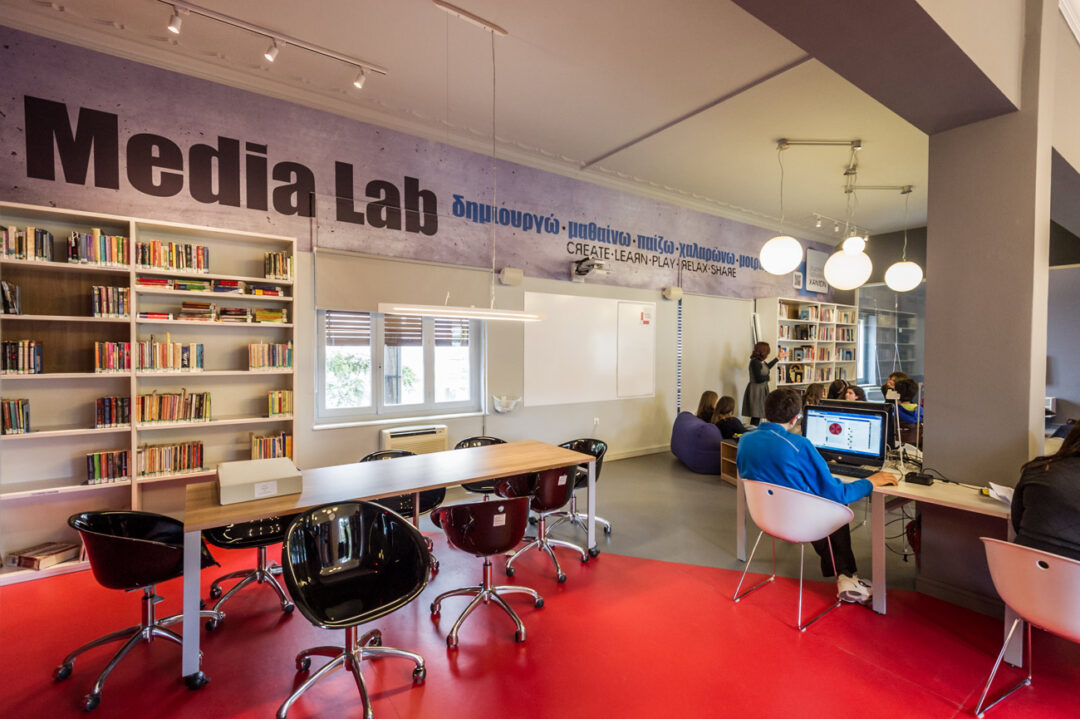
Additionally, the Chania Municipal Library offers teachers and students from both primary and secondary education the opportunity to participate in creative engagement programs, reading promotion activities, “teen month” initiatives, guided tours, and more. Daily visits from students of all educational levels to the Library facilities are frequent. These programs aim to foster a love of reading, ingenuity, creative imagination, humor, and the joy of learning.
The Library also supports, through its hundreds of multiple copies: the Book Exchange Library located at the Chania General Hospital, provided by the Municipality of Chania, which has become a reading hub for patients, their families, and medical staff; the Book Exchange Library operating in the atrium of the Chania City Hall, accessible to all citizens; newly established libraries and institutional libraries in the region, such as the Library of the Agia Rural Prison, the Philological Association of Kasteli, the Library of Palaia Roumata, and others.
Furthermore, the Library collaborates with institutions to host exhibitions in its foyer, combining books with visual arts. Examples include: the art exhibition “Climbing from A to Z” by Ioannis Monogyios; the printmaking exhibition “Tracing Erotokritos” by Grigoris Niolis; the art exhibition “Ney Matogrosso: Handsome as a Greek – Greek Mythology Inspires a Revolutionary” by Alkistis Michailidou; the contemporary art exhibition “Second Reading” by Alexandros Dimitriadis; and the photography exhibition “Bridging Cultures” by Katerina Kalogeraki, among others.
The Libraries of the Municipality of Chania are staffed by permanent specialized personnel: ten librarians and one theater pedagogue. The Head of the Library and its staff actively participate in international and national conferences, academic seminars, and online training.
Through its work and activities, the Chania Municipal Library was recognized as one of the ten selected regional libraries in the country by the Stavros Niarchos Foundation. It was ranked among the “Silver” Libraries according to the National Library of Greece’s evaluation for the 2016 Summer Reading Campaign, earning the silver medal and placing 11th out of 123 libraries nationwide.
The Library is soon to acquire its own dedicated space in a neoclassical building recently purchased by the Municipality of Chania, located in the city center.
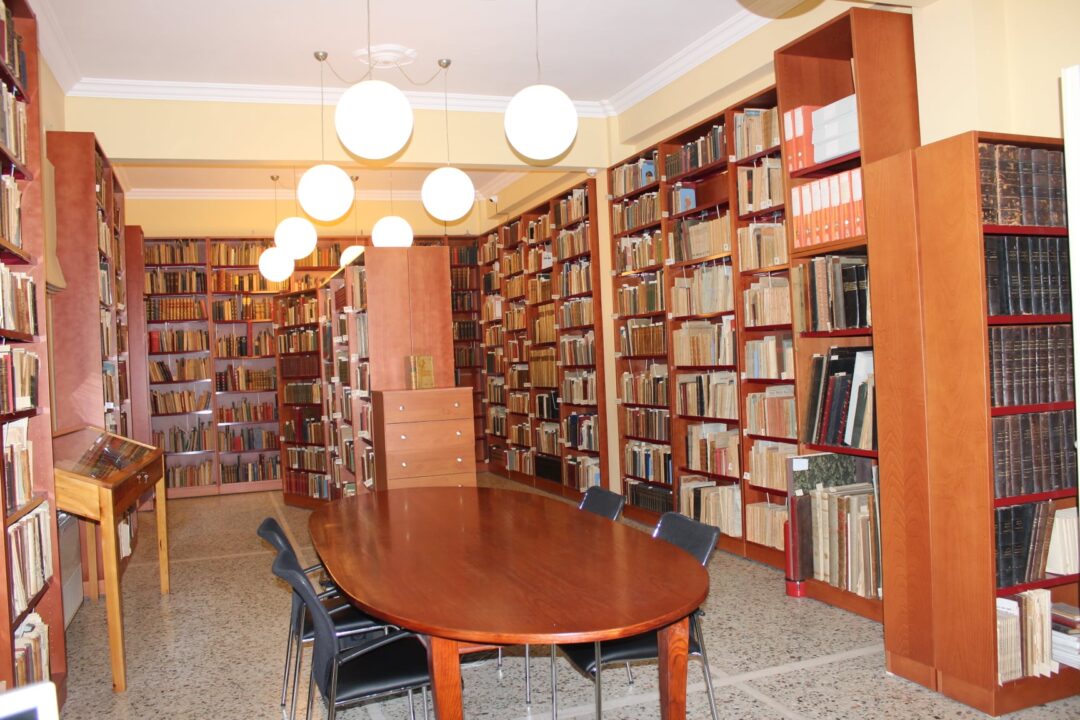
Beyond books, the Library houses important collections and archival material. Can you give us a virtual tour of these holdings?
The notable collection of the Chania Municipal Library includes: books, newspapers, magazines, rare editions, archives, photographs, maps, posters, audiovisual material (CDs, DVDs).
Over the course of its operation, several significant collections have been integrated into the Library’s holdings, the most important being the personal library of the statesman Eleftherios Venizelos, donated to the Municipality of Chania by the Venizelos family in 1957. The Eleftherios Venizelos Library comprises 8,500 volumes in Greek, French, English, German, Italian, Ottoman Turkish, and Russian. It also includes 378 periodical titles, as well as the Government Gazette dating back to 1833.
The collection features the handwritten diary of the statesman, photographic albums, and some of his personal belongings. Equally important is the Eleftherios Venizelos Archive, which contains dozens of legal documents from his early career as a lawyer, along with rare manuscripts that shed light on his political and personal life.
Tell us about the types of books housed in the Library and the resources available to visitors and readers.
The collection of the Chania Municipal Library, comprising 100,000 volumes, is constantly enriched through acquisitions and donations. It includes books across all categories, as well as a significant number of foreign-language titles. Visitors have direct access to the open shelving collections, as well as to a special Local Collection, which features books related to Crete and Cretan authors.
The Chania Municipal Library also offers: a dedicated website (https://librarychania.gr) with daily updates; a Digital Library featuring rare material, books, photographs, and archival content; electronic services, including online catalog search, social media presence (e.g., Facebook), and more.
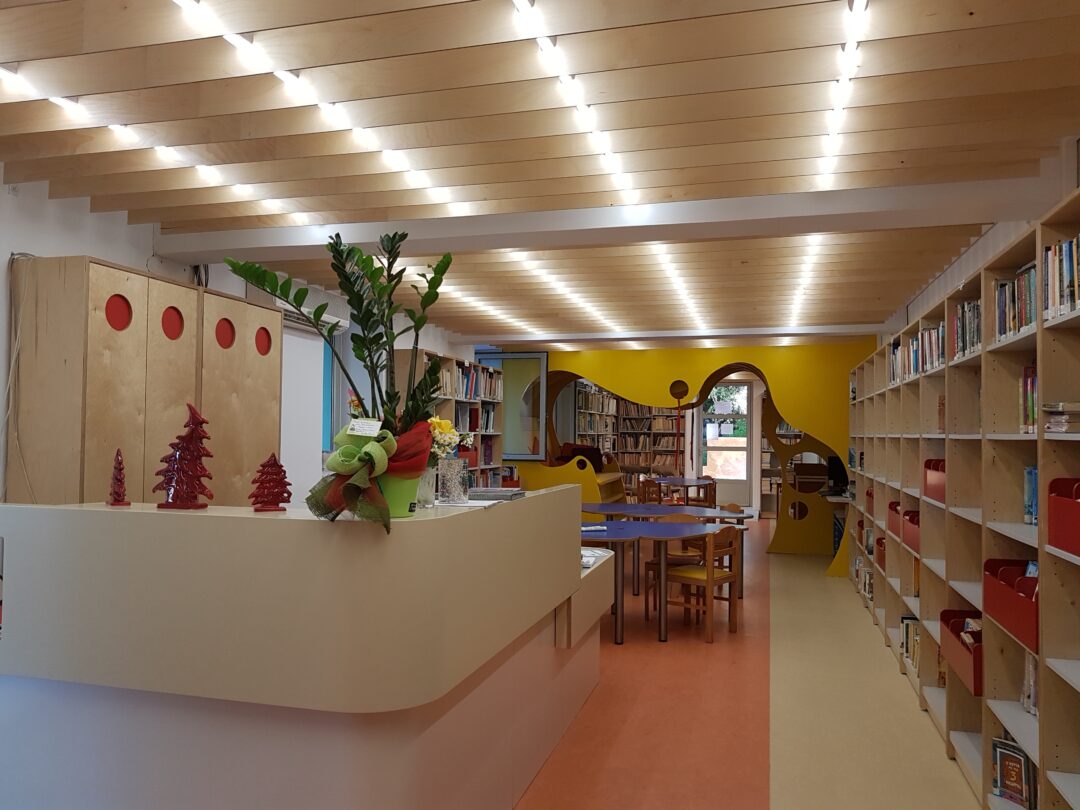
How important is the role of regional libraries in promoting reading habits?
Regional libraries play a crucial role in preserving, processing, maintaining, and promoting the intellectual heritage of communities, offering free and equal access to all. Every citizen is served without discrimination and encouraged to participate actively. Libraries also preserve both tangible and intangible cultural heritage, through the collection, documentation, and digitization of personal testimonies and memorabilia, transforming them into sources of information, research, and education for both Greece and the wider world.
The Chania Municipal Library regularly hosts authors, organizes book presentations, and continuously enriches its collection with new publications. Throughout the year, it implements reading promotion programs for children, in close collaboration with the local educational community, aiming to foster a love of reading, creativity, imagination, humor, and the joy of learning. Furthermore, the Libraries of the Municipality of Chania operate as lending libraries, serving thousands of residents—both children and adults—each year.
What are the main challenges faced today by a regional municipal library such as yours?
The role of our libraries is primarily social. Free access to knowledge and information remains our ultimate goal. Our constant concern is the ongoing development and upgrading of our library services and the highest possible quality in public service. Our struggle is focused on the future: the need for permanent staff and the establishment of modern, functional facilities.
Among the key challenges we face are limited financial resources, as well as the need to compete with social media and digital forms of entertainment. However, we remain optimistic, as library usage and readership have continued to increase annually, according to our statistics.
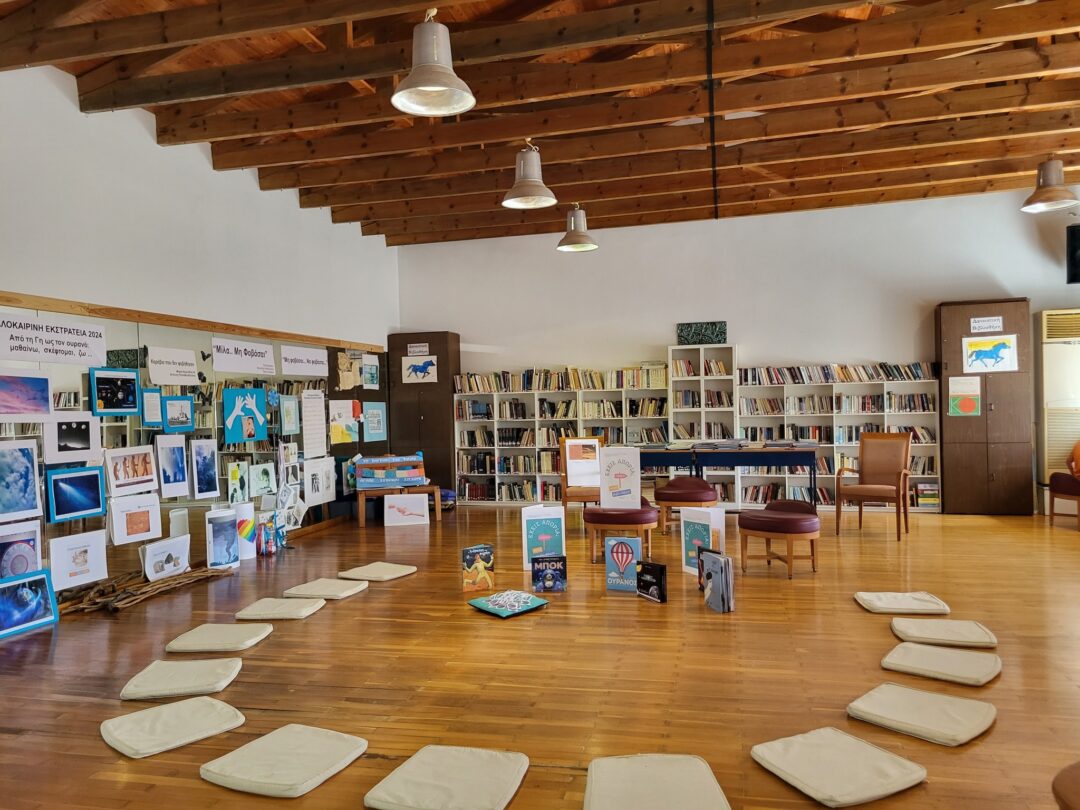
What are the future prospects for the library?
We must continue to invest in libraries to safeguard the rights to information, education, research, and culture. Our goal should be to support research and development, ensure the preservation of memory, and maintain libraries as welcoming spaces, especially when other doors are closed.
Key future prospects for libraries include: maintaining their role as cultural and social hubs; digital modernization and the provision of hybrid services; lifelong learning and citizen empowerment; networking and partnerships; showcasing local identity; offering innovative services (e.g., makerspaces, creative labs); fostering community-driven planning and design.
The Libraries of the Municipality of Chania serve as hubs of cultural events and experiential learning, offering a wide range of activities and creative workshops. They are dynamic Centers of Culture and act as incubators of knowledge, democracy, and culture.
*Interview by Athina Rossoglou
TAGS: LITERATURE & BOOKS | READING GREECE














